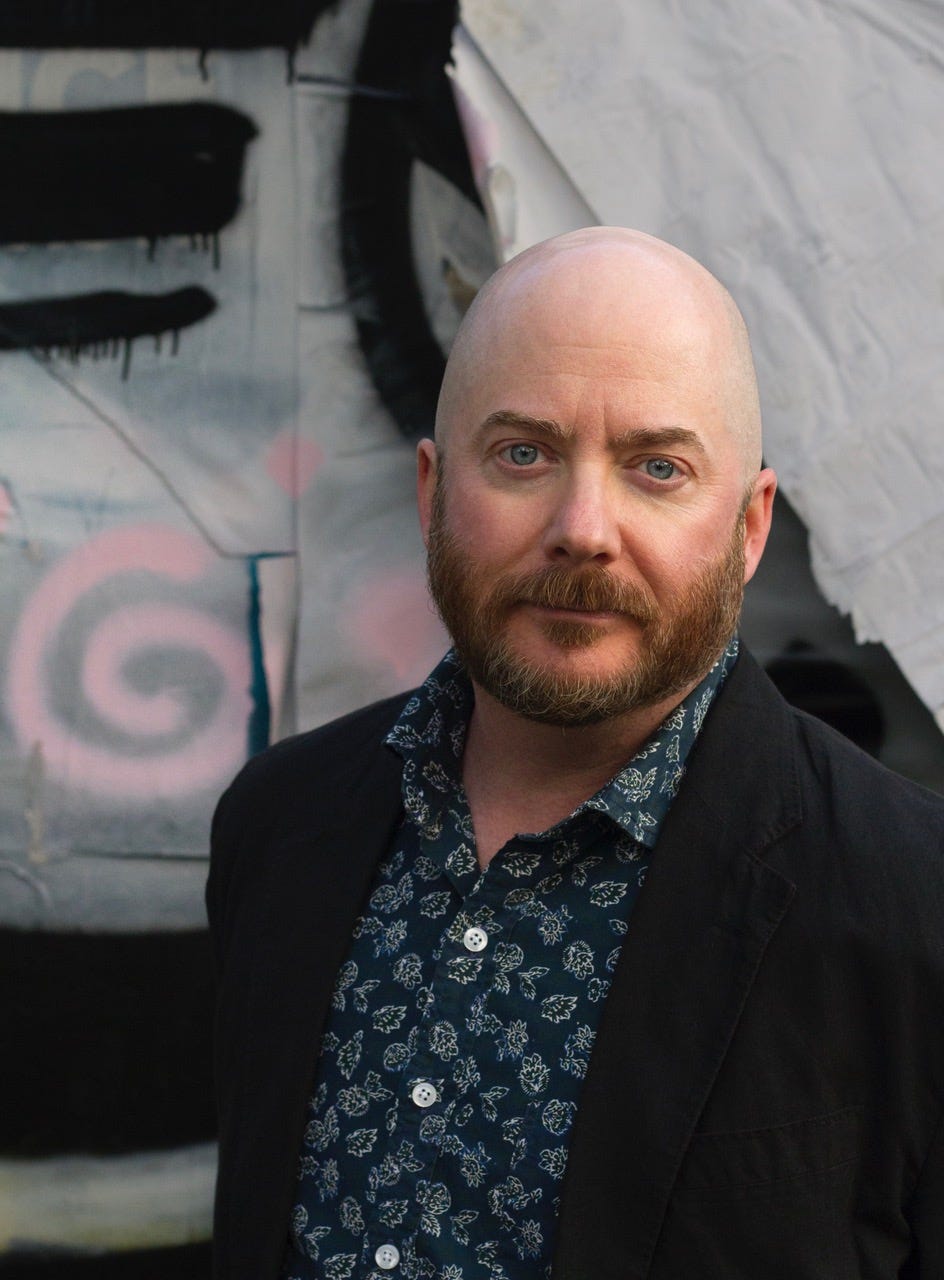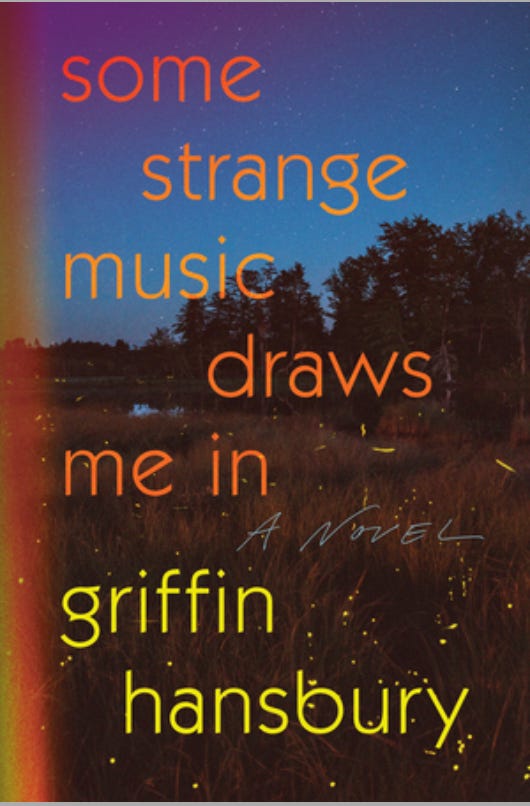Griffin Hansbury is the author of Some Strange Music Draws Me In, a novel, along with Feral City (a Finalist for the Lambda Literary Award in Transgender Nonfiction) and Vanishing New York (both written as Jeremiah Moss), as well as The Nostalgist, and Day for Night, a collection of poems.
A Pushcart Prize winner and two-time NYFA fellow (Nonfiction and Poetry), he has a master’s degree in Creative Writing/Poetry from New York University, where he studied with poets such as Cornelius Eady, Allen Ginsberg, Galway Kinnell, and Sharon Olds. His writing has appeared in n+1, The New York Times, The New York Daily News, and online for The New Yorker, The Paris Review, The Atlantic, The Village Voice, The New York Observer, Salon, and The New York Review of Books. He has also written for and been featured on the radio show This American Life, and appears in numerous documentary films, including The Stroll on HBO.
His celebrated blog “Vanishing New York” (2007 – 2021) was frequently named a Best of New York by the Village Voice. He’s been hailed as “New York City’s career elegist” by the New York Times, and the New Yorker magazine has said, “New York is lucky to have him on its side.” In 2017 he founded #SaveNYC, a grassroots activist group that raised awareness of the small business crisis in New York and advocated on behalf of local mom and pops.
Hansbury is also an award-winning and internationally published psychoanalyst working in private practice. As a specialist in gender identity, he was the first psychoanalyst to publish widely as openly transgender and his writing on the subject has advanced the field, appearing in several peer-reviewed journals, including the Journal of the American Psychoanalytic Association (JAPA), Psychoanalytic Dialogues, and Studies in Gender and Sexuality. His groundbreaking article “The Masculine Vaginal: Working With Queer Men’s Embodiment at the Transgender Edge” has been translated and published in several countries, including Argentina, Germany, and Italy. He lives in Manhattan.
—
Readers,
I’ve been a fan of Griffin Hansbury’s writing since I first stumbled upon Jeremiah’s Vanishing New York, his popular blog chronicling the escalation of hyper-gentrification in New York City, written under the pseudonym, “Jeremiah Moss.” Years ago, when we began corresponding, he let me in on his actual name. We’ve met a few times in person—in 2017 I got him to add Kingston, NY as a stop on his book tour, so we could talk about gentrification’s rapid creep up from the city to the mid-Hudson Valley. But I’d gotten so used to thinking of him as Jeremiah that, even now, I still sometimes have to remind myself to address him as Griffin.
I was excited about his new novel, Some Strange Music Draws Me In. When I asked him how things had been going since the book’s March release, he told me about encountering a challenge he hadn’t foreseen. After publishing Vanishing New York: How a Great City Lost Its Soul in 2017 and Feral City: On Finding Liberation in Lockdown New York in 2022—two very popular, widely covered books written under his pseudonym—he was struggling to garner the same kind of coverage for his new novel, written under his real name.
I thought it might be an interesting topic for discussion here in The Lit Lab, even though the book in question isn’t a memoir. What happens when your pseudonym carries more clout than your actual name—but you are tired of that alter ego, and ready to be yourself on the cover of your novel?
***
The subject of pseudonyms is compelling to me. As I mention in this video, I created one a few years ago, and even gave her a gmail account and a Twitter/X handle. I thought it might solve for me some of the problems inherent in writing memoir—exposing my embarrassing or otherwise regrettable choices, and, worse, exposing other people in my life.

I’ve published one essay under my pseudonym. It’s a painful story I didn’t want to share with the world as me. I’d hoped that getting the story out of me—and seeing people’s comments about how much they related—would be satisfying enough that I could move past what happened. But it didn’t give me the same satisfaction I’ve gotten from publishing essays under my own name. Maybe someday I’ll find the courage to republish that piece under my own byline.
I can’t imagine what it would have been like to become a popular author under my pseudonym, then later try to publish as me. So, I invited Griffin to chat with me about his experience.
We also talk about the multiple identities he juggles beyond just his two names—blogger, nonfiction author, novelist, poet, psychotherapist, and trans person—and how each identity informs which name he chooses to use.
It’s a short conversation, about 20 minutes. I hope you enjoy it.
-Sari










Share this post